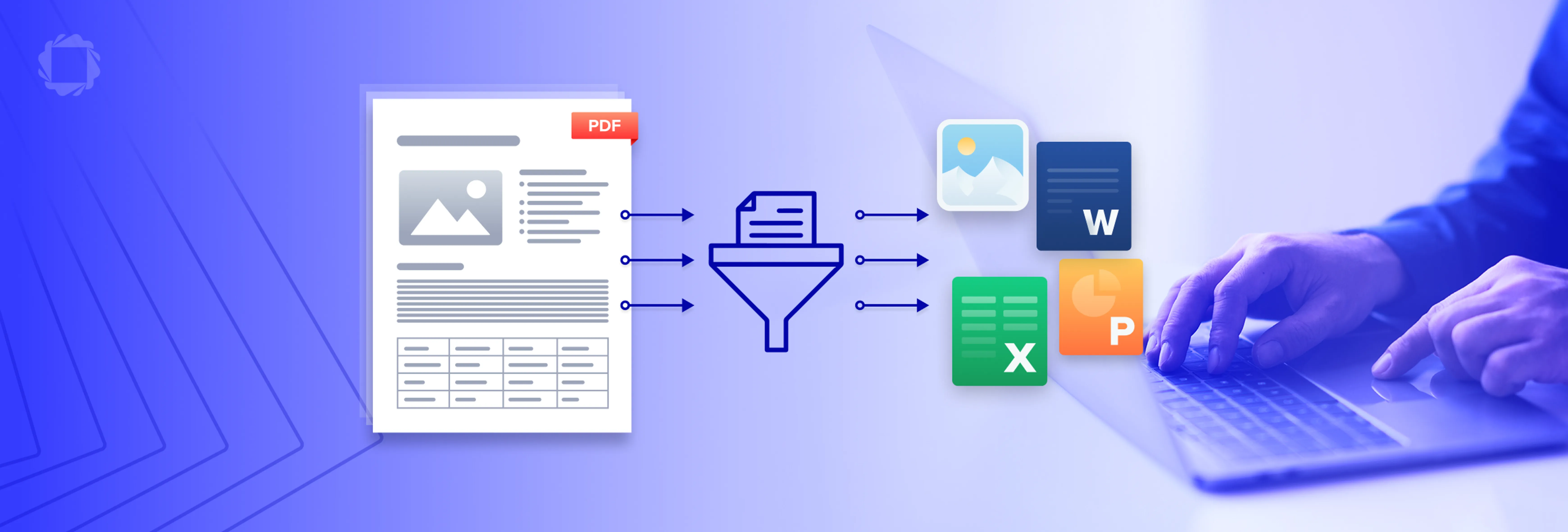WebViewer v11 Achieves UI Accessibility Compliance with WCAG 2.1AA
By Conrad Presch | 2024 Oct 30

4 min
Tags
PDF accessibility
Summary: WebViewer 11.0 achieves compliance with the UI accessibility guidelines required by WCAG 2.1 AA, future-proofing your application against upcoming regulations like the European Accessibility Act (EAA). This release includes enhanced keyboard navigation, improved contrast ratios, and screen reader compatibility in the UI, ensuring your application can serve a broader user base.
Why Accessibility Matters
According to the World Health Organization, approximately 16% of the global population, or 1.3 billion people, live with significant disabilities. This represents a significant portion of your application’s users that may have accessibility requirements that cannot properly use your application without that support. The World Wide Web Consortium seeks to address this with their Web Content Accessibility Guidelines (WCAG) standards, which have already been widely adopted by many public sectors and are now becoming more common in private industries as well. Accessibility not only ensures inclusivity for a wider audience, but it also future proofs your application against the rapid adoption of the WCAG standards. These standards not only benefit those with disabilities or impairments, but they also create better looking applications that are easier to navigate. WebViewer ensures these accessible standards are met in your application out-of-the-box, because accessibility affects everyone.
Key Features for Accessibility in WebViewer v11
WebViewer v11 introduces a range of UI enhancements that ensure compliance with the WCAG 2.1 AA guidelines, including:
Enhanced Keyboard Navigation
Users can seamlessly navigate WebViewer’s UI, including toolbars, modals, panels, and more using just the keyboard. Keyboard users are supported by a logical navigational structure, so that when they enter a modal or panel such as the print menu, they will return to the opening element (i.e., print button) when they exit the modal or panel.
Improved Contrast Ratios
Text and selected UI elements now meet strict contrast guidelines, improving readability for users with visual elements. This not only makes it easier for users with visual impairments but also reduces eye strain for users in low light environments.
Screen Reader Compatibility
WebViewer’s UI now fully supports screen readers, ensuring all visual elements are effectively communicated to those with assistive technologies. Contextual cues are also supported, such as the number of search results found.
The European Accessibility Act: Breaking Change
Taking effect in June 2025, the European Accessibility Act introduces sweeping regulations for many digital products and services operating in the European Union. Much like the introduction of GDPR, these regulations are wide reaching and will cause disruptions for businesses that do not prepare for it. The EAA will require most digital products and services to conform to WCAG 2.1 AA guidelines or face significant penalties.
Who is Affected by the European Accessibility Act?
The EAA, unlike other historical regulations, will apply to both public and private sectors that provide products and services in the EU. This will affect more than typical software companies.
Digitally, this can include:
- Airlines
- SaaS
- Digital entertainment
- E-Commerce
- Finance
- Healthcare
- Insurance
- Telecommunications
And more.
Non-EU businesses that provide digital products or services to EU consumers will also need to comply with the EAA, much like GDPR requirements. Non-affected businesses will be companies with fewer than 10 employees or non-consumer facing digital services, while companies with select legacy systems may be granted an extended timeline to adapt.
What are the Penalties?
Penalties vary country by country in the EU, but can include:
- Fines: These can be single fines or daily fines depending on the country or violation.
- Market exclusion: Non-compliant products and services may be barred from operating in the EU.
For businesses operating in industries like e-commerce, finance, healthcare, and entertainment, adhering to these guidelines is crucial to avoiding regulatory setbacks and continuing operations in the EU.
Global Accessibility Trends
The WCAG guidelines have already become a global standard adopted by many governments. The USA has adopted them with Section 508 of the Rehabilitation Act and the Americans with Disabilities Act. Canada’s Accessible Canada Act applies similar public sector standards. With the introduction of the EAA, we could see these standards become even more widely adopted in the private sector in the coming years. Where global governments adopt WCAG guidelines, Apryse meets them to ensure your compliance needs are met for file viewing.
What Else Does v11 Deliver?
In addition to UI accessibility improvements, V11 makes your applications suit a wider audience with:
Modular UI
WebViewer’s modular UI customization, introduced earlier this year, is now the default UI type. Create a bespoke view for your users that will be complimented by the new accessibility improvements.
Auto-tagging
Automatically tag PDFs with information that’s critical for both assistive technologies and machines to understand PDF content to meet one of the requirements for PDF/UA compliance.
Experience WebViewer V11 for yourself today and ensure your digital viewing experience is ready for the future of accessibility compliance.
Tags
PDF accessibility

Conrad Presch
Product Marketing Manager
Share this post



